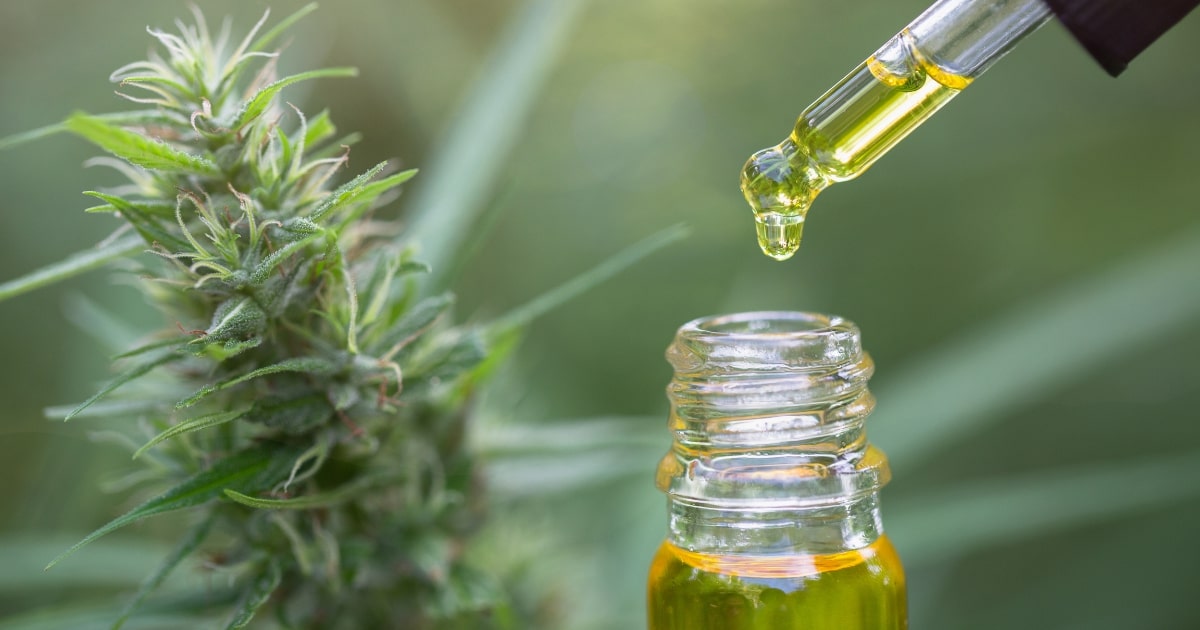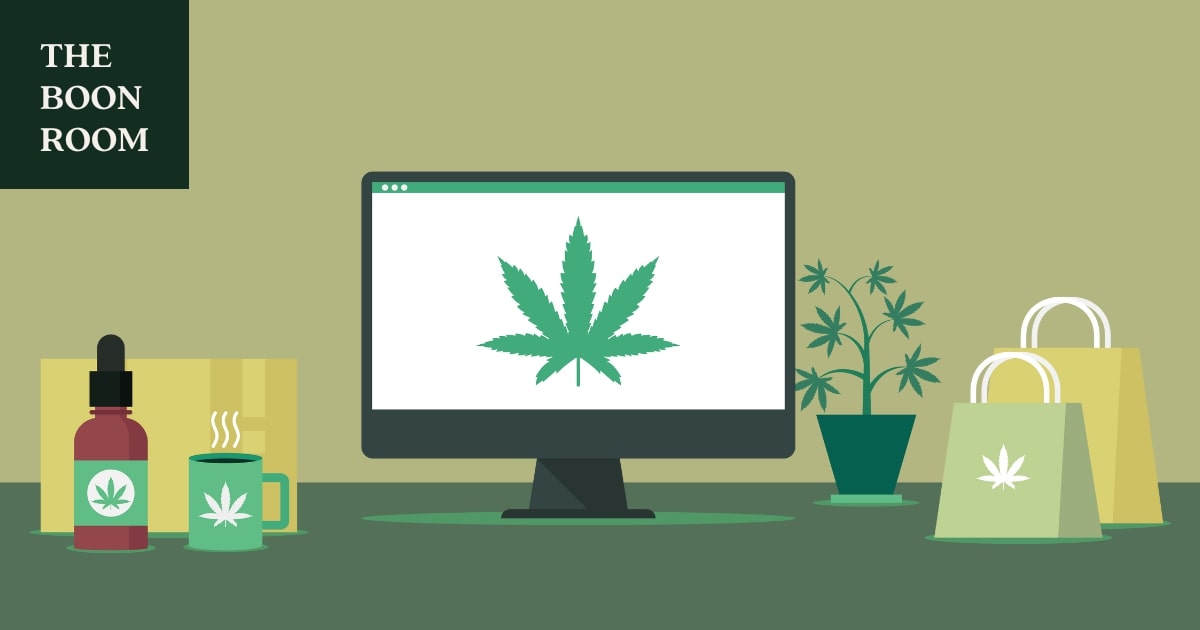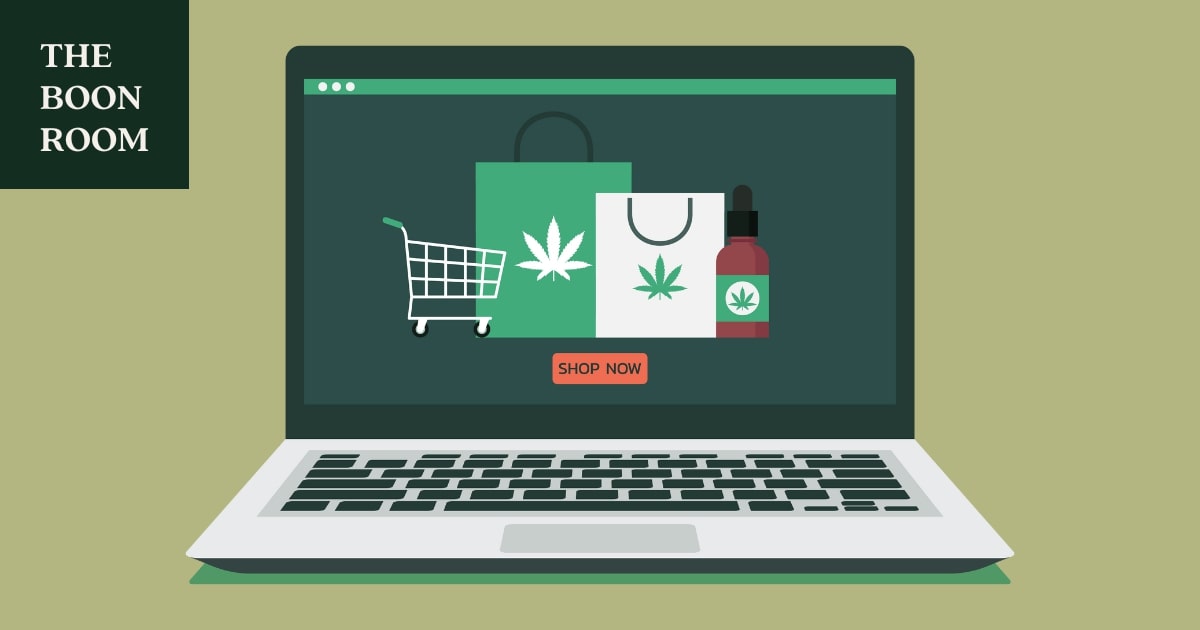CBD, or cannabidiol, is a potent and therapeutic substance that occurs naturally in the cannabis plant. Like its well-known partner, THC (tetrahydrocannabinol), CBD is a cannabinoid, meaning it interacts with the receptors in your body’s endocannabinoid system, resulting in a variety of relaxing and pain-relieving effects. CBD’s most notable difference when compared to THC and full-spectrum cannabis is that it delivers these powerful therapeutic effects without the heady psychoactive “high” typically associated with cannabis use.
These powerful and well-researched effects meant that a market niche was already waiting when CBD was legalized through the 2018 Agriculture Improvement Act. Its popularity has only increased exponentially since legalization, creating a potentially lucrative opportunity for budding entrepreneurs or those looking for a reliable side hustle.
The Versatility and Value of CBD
One of the main factors that make CBD so valuable as a marketable product is its versatility. When we say CBD is a versatile product, we mean this in two specific ways.
Versatility of Use
First are its multifaceted uses, which speak to the potential for broad marketing for both health-conscious consumers and medical patients. CBD has emerged as an extremely popular natural supplement to help remedy a variety of conditions or symptoms. This skyrocketing popularity is grounded in numerous studies highlighting the many potential benefits and uses of this totally legal and non-psychoactive derivative of the cannabis plant.
Some top applications for CBD use include:
- General Relaxation – When someone is looking for the general relaxation and “vibe” of cannabis without the heady psychoactive high, most people will start their search with CBD.
- Pain Management – CBD’s incredible potential as an all-natural pain reliever is perhaps its most celebrated attribute. CBD’s interaction with your body’s endocannabinoid system can help alleviate many forms of pain through its anti-inflammatory effect. Because of this, CBD can be effective for everything from everyday back pain to the discomfort associated with severe long-term conditions like multiple sclerosis.
- Anxiety, Depression, Mental Health – Clinical trials, as well as anecdotal reports from many users, suggest that CBD can also help to mitigate the symptoms of depression and anxiety. CBD use appears to influence serotonin levels, which can regulate mood and behavior issues.
- Sleep – Cannabis is celebrated by many who struggle with insomnia. While some people prefer the full spectrum effects of THC-rich cannabis buds before bed, others find the high to be overwhelming or disruptive at bedtime and prefer the gentler option offered by high-quality CBD products.
- Skin Care – Topical CBD products like lotions, ointments, and face creams are also becoming very popular. Topically applied CBD allows the user to target specific areas of the body with its anti-inflammatory effects.
- Epilepsy – One crucial application for CBD, and one which was behind much of the push that got it legalized nationwide, is in the treatment of epilepsy patients. CBD is extremely effective in reducing seizures, particularly in children and patients who do not respond well to other medicines. In fact, the first-ever FDA-approved drug based on CBD (Epidiolex) is prescribed for this very purpose.
Versatility of CBD Forms
The other aspect of CBD’s remarkable versatility is the many forms it comes in. We touched on just a tiny fraction of these different products in the “Skin Care” bullet point above, but you can also find a CBD form of just about any familiar retail cannabis product like pre-rolls, vapes, and edibles. The full range of different types of CBD products available on the market today is simply too vast to list here, and new ones can be easily invented and trialed on a small scale using potent CBD oils and extracts.
These various forms of CBD delivery methods allow for flexibility: anyone can find a product that fits their needs and lifestyle, opening the market to all sorts of potential end users, including those who have no interest in smoking or cannabis culture. This gives CBD vendors a lot of options when strategizing to define their audience and reach them effectively.
The major categories of CBD products include:
- Oils and Tinctures
- Capsule Supplements
- Edibles
- Topicals
- Vapes
- Dried Flower
- Drinks
Understanding CBD Federal and State Laws
Now that you understand the near-limitless potential of CBD as a highly marketable product for all sorts of demographics, you’ll also need to understand how to operate within the bounds of the law. Since full-spectrum cannabis is still illegal at the federal level, it’s crucial to protect yourself and understand exactly the laws you’re working with.

For example, while CBD is currently legal under federal law, specific laws regarding the sale, possession, and distribution of cannabis-derived products can vary quite a bit from state to state.
Here are some key facts to keep in mind as you start your research into this area:
- The previously-referenced 2018 farm bill made hemp-derived products (including CBD) legal in the United States; full spectrum cannabis products containing THC remain illegal under federal law despite many states having legalized them.
- To be considered legal under this legislation, products must have a THC concentration of less than 0.3%.
- Some states impose specific regulations regarding CBD and other non-THC cannabinoids. In California, for example, CBD products are considered cannabis products and, as such, are subject to regulation and licensing. Know your state laws and the laws of any state you plan to ship products to.
- Enlisting the help of a reputable attorney who has experience working with cannabis startups can be a key asset if your budget allows for it.
CBD Licensing and Registration

One of the major questions entrepreneurs have when they look at the viability of selling CBD products is whether any special licensing is involved. Despite federal legalization of CBD, this will vary from place to place depending on your state’s framework for defining and regulating cannabis products.
As just a few examples:
- Businesses in the State of Florida that want to sell CBD products must apply for a Hemp Food Establishment Permit from the Department of Agriculture and Consumer Services Division of Food Safety.
- In Indiana, there are specific labeling requirements, including a special QR code, for CBD products. These strict requirements must be followed per the state’s Senate Bill 52 (2018), which defines and regulates “low THC hemp extract.”
- Texas CBD vendors must obtain a license from the state’s Health and Human Services Department.
- As of 2021, CBD retailers in New York are subject to the state’s “Cannabinoid Hemp Program,” which includes licensing and packaging requirements.
- Although known for its progressive and forward-thinking stance on cannabis, Colorado actually has some fairly stringent regulations around the sale and production of CBD products, including licensure and product testing.
Please be aware that these are only some examples of state laws. Many other states also have specific requirements for CBD producers and retailers. Other states, like Michigan and Oregon, are quite a bit easier on would-be CBD entrepreneurs, as they require no special state-level licenses for retailing CBD products (at least for now).
Shopping CBD Products
As you might guess, the wide variance in laws and licenses from state to state can make shipping CBD products across state lines a major headache. Mistakes can become a legal liability in some cases. In addition to knowing your state laws as well as the laws in the states you’re shipping to, you will have to be sure you’re working with a shipping company that allows CBD products. UPS, FedEx, and the US Postal Service all have specific rules regarding hemp-derived products. Most of all, you must ensure your products are compliant with federal law and securely packed every time.
Online CBD Store
Setting up an online storefront is a great way to get into the retail business at a low price point and reach a wide range of potential customers. Once you’ve navigated any legal requirements specific to your state and are ready to set up an online store, there are a lot of options out there, from simple, drag-and-drop interfaces, to coding your own website from scratch. The option that is right for you will probably be somewhere between those two extremes.
If you’re not sure where to start, try following this basic outline:
- Finalize your business plan – Setting up a website and defining your brand should only come after you have a solid business plan in place. If you don’t have experience writing a formal business plan, don’t panic. It’s meant to be a fairly concise document, and there is a ton of help online for writing your own.
- Choose your ecommerce platform – Shopify and WooCommerce are a couple of the established names that allow you to easily set up a store online with no coding knowledge required. However, you need to be very careful about reading your platform’s terms of service before selling any hemp-derived products (and the same goes for the companies that will be hosting your website and processing your payments). It may be best to reach out directly to the customer service team for assurance before committing to any particular platform.
- Website design – Now comes the fun part, though this can prove the most difficult, depending on where your strengths lie. You can tackle web design yourself with simple drag-and-drop interfaces and logo generator software, or you can hire professionals who can make your exact vision come to life and help your website speak to your unique brand. The right choice depends on your budget and your personal skill set.
Choosing the Right CBD Products

Of course, a great-looking online store isn’t worth much if customers can’t find the products they want.
We’ve gone over some of the different CBD products earlier in this blog, but you’ll also need to consider the following:
- Quality – With the CBD industry quickly becoming saturated, there are some very questionable suppliers out there just trying to make a buck off the lower end of the market. While the upfront value may be attractive, low-quality products will make it difficult to build and retain a customer base in the end.
- Variety – Even if you have a tightly defined niche, try to offer a variety of products that will be of interest to shoppers within that niche. If you’re focusing on a single product or product line, make sure that it comes across as an integral part of your brand.
- Price – Know your budget and find a way to choose the most effective products within that budget. Be sure you carry sufficient stock of the core products your customer base will want. You can always plan to expand with more experimental offerings at a later date after the business has grown.
FAQs About Selling CBD
It’s natural to have quite a few questions when considering any new business venture. It’s even more common when you consider the potential legal gray areas involved with selling and shipping CBD.
Here are some common questions about the process.
The Boon Room: Your Trusted Source for CBD Info
We are a showcase of ideas, projects, and information, delivered with integrity and transparency. Whether you’re involved in the chain of production for a product and are seeking to make changes to your business, or a consumer looking to become more educated on ways to integrate sustainability into your everyday life, The Boon Room has something for you.

For more insightful information about CBD, THC, and the retail cannabis industry, follow The Boon Room on social media, subscribe to our newsletter, and don’t forget to check our blog for new content.
References :
- Atakan, Z. (2012). Cannabis, a complex plant: Different compounds and different effects on individuals. Therapeutic Advances in Psychopharmacology, 2(6), 241–254. Retrieved from https://www.ncbi.nlm.nih.gov/pmc/articles/PMC4604171/
- DankBudz. (n.d.). Pain and anxiety relief from CBD just got more exacting. Retrieved from https://dankbudz.com/blog/pain-and-anxiety-relief-from-cbd-just-got-more-exacting/
Jenny Weatherall is the co-owner and CEO of Eminent SEO, a design and marketing agency founded in 2009. She has worked in the industry since 2005, when she fell in love with digital marketing… and her now husband and partner, Chris. Together they have 6 children and 3 granddaughters.
Jenny has a passion for learning and sharing what she learns. She has researched, written and published hundreds of articles on a wide variety of topics, including: SEO, design, marketing, ethics, business management, sustainability, inclusion, behavioral health, wellness and work-life balance.

